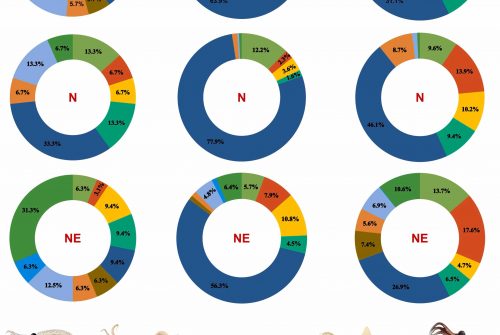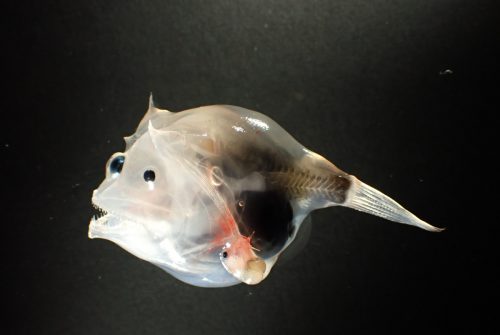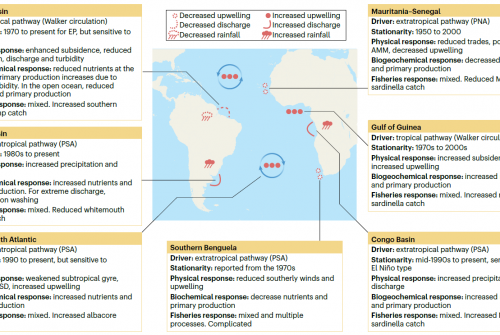
Microplastics are a relevant environmental concern in marine ecosystems due to their ubiquity. However, knowledge on their dispersion patterns within the ocean basin and the interaction with biota are scarce and mostly limited to surface waters. This study investigated microplastic contamination in two species of deep-sea cephalopods from the southwestern Atlantic with different ecological behaviour: the vampire squid (Vampyroteuthis infernalis) and the midwater squid (Abralia veranyi). Microplastic contaminated most of the evaluated specimens. V. infernalis showed higher levels of contamination (9.58 ± 8.25 particles individual−1; p < 0.05) than A. veranyi (2.37 ± 2.13 part. ind.−1), likely due to the feeding strategy of V. infernalis as a faecal pellets feeder. The size of extracted microplastics was inversely proportional to the depth of foraging. The microplastics were highly heterogeneous in composition (shape, colour and polymer type). Our results provide information regarding microplastic interaction with deep-sea organisms and evidence of the biological influence in the microplastic sinking mechanism.
DOI:doi.org/10.1016/j.marpolbul.2021.113309
Reference
Ferreira, G.V.B., Justino, A.K.S., Eduardo, L.N., Lenoble, V., Fauvelle, V., Schmidt, N., Junior, T.V., Frédou, T., Lucena-Frédou, F., 2022. Plastic in the inferno: Microplastic contamination in deep-sea cephalopods (Vampyroteuthis infernalis and Abralia veranyi) from the southwestern Atlantic. Marine Pollution Bulletin 174, 113309.







